/20th_2.jpg)
<<click here for archives >>
Vol 23, No. 3
November 2018
Published three times annually by the Mass Communication Division of NCA.
Publications/Web Editor - Zac Gershberg, Idaho State University
Sponsored by:
In this issue:

We're on Facebook! 662 members and counting...
...click [here] and join us today!
Welcome from the Chair
Baton Rouge, LA -- Welcome to the convention issue of the Gatekeeper! We're less than two weeks away from the 104th annual convention of NCA. I'm sure I speak on behalf of the other officers when I say we're really looking forward to reconnecting with and learning about the work you've been engaged with since last year. As always, we have an exciting and diverse program of convention presentations and events. I encourage you to attend as many MCD sessions as you can, but I want to highlight three sessions on Friday, November 9:
- Mass Communication Top Papers, 8:00 a.m. - 9:15 a.m., 255C - Level 2
- Mass Communication Division Business Meeting, 9:30 - 10:45 a.m., 255C - Level 2
- Mass Communication Top Student Papers, 11:00 - 12:15 p.m., 255C - Level 2
As my term as MCD chair comes to an end, I would like to thank all of the MCD officers for their tireless work on behalf of the division. In particular, I would like to express my gratitude to the members of the MCD Research Committee: Tracy Worrell (Research Chair), Nicole Martins, Jessica Gall Myrick and Lisa Perks. They have done a phenomenal job of putting together a fantastic line-up of sessions, along with the Vice Chair, Lissa Behm-Morawitz. I also want to give special acknowledgement to Vice Chair-Elect, David Rhea, for his hard work in managing the Service and Teaching awards nomination process, and the inaugural Dissertation Award. Also, I would like to thank Zac Gershberg (our Publications & Web Editor) whose department has committed to fund our NCA MCD site for a two-year period. Finally, I'd be remiss if I didn't thank those members who volunteered their time to review paper submissions, awards submissions or took the time to nominate members for division awards. Our division cannot exist without its members and we appreciate your engagement.
Finally, I hope you will consider nominating yourself or a peer for one of the open officer positions for MCD. Over the last decade or so, I have thoroughly enjoyed serving in various roles in the division and have met some incredibly wonderful people who have inspired me with their selfless service to our division and discipline. I hope you will consider following suit.
I look forward to seeing you all in Salt Lake! Safe travels to all of you!
Wishing you all happiness,
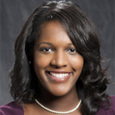 Dr. Meghan S. Sanders Dr. Meghan S. Sanders
Chair, Mass Communication Division
Louisiana State University
msand@lsu.edu
<<back to top>>
Editor's Note
Pocatello, ID -- Please enjoy reading through the convention issue of The Gatekeeper. This issue is bittersweet for me, as it marks the end of my three-year terms as publications and web editor. It has been an honor to serve, and I hope you've enjoyed the Gatekeeper scholarly chats, in particular. Many thanks to my precedessor, Nick Bowman, for all of his help, as well as the support and engagement from the chairs with whom I've been able to serve: Sumana Chattopadhyay, Narissra Punyanunt-Carter, and Meghan Sanders.
Below you'll find a host of announcements about MCD, including the top panels as well as officer nominations and new job calls. We will be looking for a new publications editor, so if you'd be interested in taking over, or know anyone who might, please feel free to contact me!
Further down you'll find this issue's Gatekeeper Scholar Chat with Dr. Sophie Janicke-Bowles from Chapman University. She is a positive media psychologist, and it was remarkable to end my term leaning about a new area in mass comm.
In closing, I really appreciate all of the support and contributions you've sent my way. I do hope Gatekeeper can continue, and look forward to tuning as someone else takes over!
All the Best,
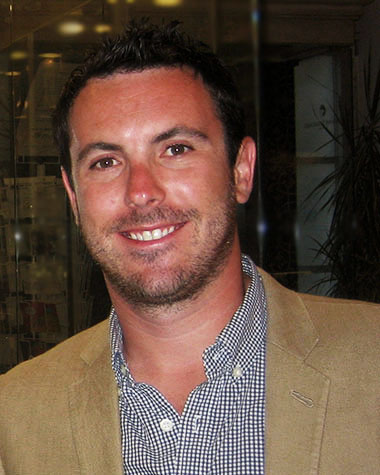 Dr. Zac Gershberg Dr. Zac Gershberg
Publications and Web Editor, The Gatekeeper
Idaho State University
gerszach@isu.edu
<<back to top>>
Announcements
Top Paper Award Panel
Fri, 11/9, 8:00 AM - 9:15 AM
Salt Palace Convention Center
Room: 255C (Level 2)
These papers were the highest reviewed individual paper submissions to the Mass Communication division.
Chair
Elizabeth Behm-Morawitz, University of Missouri
Respondent
Meghan Sanders, Louisiana State University
Exploring the Spirit in U.S. Audiences: The Role of the Virtue of Transcendence in Inspiring Media Consumption
Recently mass communication scholars have started to explore media content that is inspirational in nature: messages that are touching, moving, and thought-provoking and that elicit self-transcendent emotions (Oliver et al., in press; Authors, 2018). However, when it comes to the audiences who routinely seek out such content, little is yet known. The current study expands the research on inspirational media by utilizing a nationally representative sample of U.S. audiences (N = 2,016) to explore relationships between media consumed for self-transcendent emotions, trait transcendence, religious affiliation, and prosocial behaviors. Results show that inspiring media content is a reliable source for everyday self-transcendent emotions in U.S. audiences. Inspiring media is frequently encountered by persons with high levels of trait spirituality and gratitude; however, religious affiliation seems not to play a role in inspiring media exposure. Further, inspiring media exposure significantly predicts prosocial behaviors. The profile of U.S. audiences that seek out inspiring media is discussed.
Authors
Sophie H. Janicke-Bowles, Chapman University
Arthur A. Raney, Florida State University
Mary Beth Oliver, Penn State University
Katherine Dale, Florida State University
Robert P. Jones, Public Religion Research Institute
Daniel Cox, Public Religion Research Institute
Extending Beyond the Voting Booth to the Jury Box: Linking Undocumented Immigrants with Criminality in U.S. News Coverage
Research suggests that media coverage featuring immigrants almost exclusively presents them as criminals, undocumented, and Latino. The present study experimentally tests the differential effects of exposure to crime news coverage depicting undocumented Latino immigrants and White American suspects accused of the same crime. Using insights from social identity theory, mediated intergroup threat literature, and applied research on the punitive treatment of racial/ethnic minorities in the legal system, it was theorized that exposure to coverage intersecting immigrants and crime, would not only manifest in harsher punitive outcomes for undocumented Latino suspects, but also that White viewers' attitudes about immigration and the strength of the racial identity would mediate and moderate this relationship, respectively. Results indicated support for the presence of outgroup bias, in the form of longer prison sentences for highly threatening Latino suspects, among White viewers. The influence of immigration attitudes in this context also was revealed. However, group identity was not found to moderate these relationships.
Authors
Andrea A. Figueroa-Caballero, University of Missouri
Dana Mastro, University of California, Santa Barbara
The Moral Foundations Dictionary for News (MFD-N): A Crowd-Sourced Moral Foundations Dictionary for the Automated Analysis of News Corpora
The Moral Foundations Dictionary (MFD; Graham, Haidt, & Nosek, 2009) is a widely-used tool to automatically extract moral information from textual corpora. Yet, the MFD inherits certain limitations such as ad hoc pre-selection and overlappings of word stems that limit its validity. In this paper, we introduce a crowd-sourced approach for developing a moral foundation dictionary derived from a total of 65,012 highlights of 1,009 online newspaper articles highlighted by a U.S. representative sample of 557 human coders. We cross-validate various methodologies and parameters for developing a wordcount-based Moral Foundations Dictionary for News (MFD-N) that reliably classifies news documents according to their latent moral profile and shows satisfactory convergent validity toward related content features such as topics and sentiment. We discuss further refinements and tunings of our dictionary and point towards future research directions for its implementation.
Authors
Frederic Hopp, University of California, Santa Barbara
Devin Cornell, University of California, Santa Barbara
Jacob Fisher, University of California, Santa Barbara
Richard Huskey, Ohio State University
Rene Weber, University of California, Santa Barbara
Top Student Paper Award Panel
Fri, 11/9, 11:00 AM - 12:15 PM
Salt Palace Convention Center
Room: 255C (Level 2)
These are the highest reviewed student papers submitted to the Mass Communication Division.
Chair
Tracy Worrell, Rochester Institute of Technology
Respondent
Nicole Martins, Indiana University
Donald Trump, Hillary Clinton, and Bill O'Reilly: Parasocial Relationships with Disliked Television Characters, Depressive Symptoms, and Loneliness Among Older Adults
Scholars have examined how children, young adults, and adults in general experience parasocial relationships with disliked television characters. Extending this research to older adults, this study considered how parasocial relationships with disliked characters predict depressive symptoms and loneliness, as well as how individual characteristics (i.e., attachment anxiety and avoidance) and relational characteristics (i.e., quality of real-life romantic and parent-child relationships) moderate these associations. For older adults in lower-quality relationships (both romantic and parent-child), lower attachment avoidance and stronger parasocial relationships with disliked characters interactively predicted an increase in depressive symptoms. For older adults in lower-quality romantic relationships, stronger parasocial relationships and higher avoidance interactively predicted a decrease in loneliness. Parasocial relationships and attachment avoidance did not interactively predict depressive symptoms and loneliness for older adults in higher-quality relationships (both romantic and parent-child). Contextualizing older adults' parasocial relationships alongside other individual and relational characteristics may offer a more complete understanding of how such relationships are associated with depressive symptoms and loneliness.
Author
Quinten Shenk Bernhold, University of California, Santa Barbara
How Trending Topics Gatekeep News Consumption on Social Media: A Natural Experiment on Weibo
With the digitalization of news, actors that gatekeep information flow have extended from news organizations and professional journalists to online audiences. We argue that digital technologies play a nontrivial role in gatekeeping as well. In particular, trending topics on social media could implement two layers of gatekeeping: intra-outlet gatekeeping and inter-outlet gatekeeping. Using a natural experiment on Weibo, we found that trending topics list directed significant extra traffic to top news items in each news outlet but not ordinary posts (intra-outlet gatekeeping), and the increases of traffic to top news items were most salient among least popular news outlets (inter-outlet gatekeeping).
Authors
Tian Yang, University of Pennsylvania
Yilang Peng, University of Pennsylvania
Journalism is the new advertising: Normative considerations in the rhetoric of native advertisements
Native advertising content is not simply something that occurs within networks; it requires direct interaction with the lifeworld as part of the 'native' process. This essay explores native advertising as a normative practice in the public sphere. I argue that native advertising is a way in which corporations are colonizing the lifeworld. This paper develops a framework for how to identify the rhetorical structures which have shaped native advertising into a normative practice.
Author
Seth A. Fendley, University of Central Florida
"Check my Fat-Steps": Healthism, Race, and Rhetorical Strategies of "Othering" in The Mindy Project
Despite a woman of color as the lead actor in the television program The Mindy Project, the program nevertheless reinforces the dominant ideology of whiteness, healthism, and postfeminism, moralizing health to "other" women of color. This rhetoric has important implications for how women of color perceive themselves in relation to their health choices because it portrays health in relation to food as actively "othering," making women complicit in the perpetuation of dominant narratives of whiteness.
Author
Madison A. Krall, University of Utah
Mass Communication Division Elections
The Nominating Committee of the Mass Communication Division is enthused to announce the following slate of nominees for our upcoming elections:
Vice-Chair Officer Elect
- Julianna Kirschner, University of Southern California
Secretary Elect
- Jessica Zurcher, Brigham Young University
Graduate Student Representative
- Timothy Luisi, University of Missouri
Nominating Committee (2 positions)
- Andrea Figueroa-Caballero, University of Missouri
Representative to the Legislative Assembly
- Stan Tickton, Norfolk State University
No nominations for these roles have been received:
- Publications & Web Editor
- Second Vice Chair-Elect Officer of the Research Committee
- Representative to the NCA Nominating Committee
Additional nominations will be accepted from the floor during our business meeting on Friday, November 9 at 9:30 a.m. in Room 255C of the Salt Palace Convention Center.
Job Announcements
Norfolk, VA - Two tenure track positions are open at Norfolk State University. The close date for applications for each position is January 31, 2019.
Assistant/Associate Professor - Mass Communications & Journalism (TV/Film Studies)
Norfolk State University (NSU), a historically black university with an enrollment of over 5,000 students, invites candidates for the position of Assistant/Associate Professor of Mass Communications & Journalism (TV/Film Studies), for its ACEJMC accredited Department of Mass Communications and Journalism.
The department currently offers a Bachelor of Science degree with a track in general broadcasting, and journalism; and also houses the Masters of Arts in Media and Communication graduate program. The department has active NBS-AERho and PRSSA Chapters, and supports the campus newspaper, The Spartan Echo, WNSB-FM, and CCTV WNSU-TV. The university is located in a top-fifty media market.
For the official listing see the following web link: https://virginiajobs.peopleadmin.com/postings/128519
Assistant/Associate Professor - Mass Communications & Journalism (Digital and Social Media)
Norfolk State University (NSU), a historically black university with an enrollment of over 5,000 students, invites candidates for the position of Assistant/Associate Professor of Mass Communications & Journalism (Digital and Social Media), for its ACEJMC accredited Department of Mass Communications and Journalism.
The department currently offers a Bachelor of Science degree with a track in general broadcasting, and journalism; and also houses the Masters of Arts in Media and Communication graduate program. The department has active NBS-AERho and PRSSA Chapters, and supports the campus newspaper, The Spartan Echo, WNSB-FM, and CCTV WNSU-TV. The university is located in a top-fifty media market.
For the official listing see the following web link: https://virginiajobs.peopleadmin.com/postings/128513
Call for Nominations for Journal Editor of Psychology of Popular Media Culture
The Publications and Communications (P&C) Board of the American Psychological Association has opened nominations for the Editorship of Psychology of Popular Media Culture. Joanne Broder Sumerson, PhD, is the incumbent editor.
Psychology of Popular Media Culture is a scholarly journal dedicated to publishing empirical research and papers on how popular culture and general media influence individual, group, and system behavior. The journal publishes rigorous research studies, as well as data-driven theoretical papers on constructs, consequences, program evaluations, and trends related to popular culture and various media sources.
Candidates should be members of APA and should be available to start receiving manuscripts in early 2020 to prepare for issues published in 2021. Please note that the P&C Board encourages participation by members of underrepresented groups in the publication process and would particularly welcome such nominees. Self-nominations are also encouraged.
Kate F. Hays, PhD, will chair the search.
Nominate candidates through APA's Editor Search website.
Prepared statements of one page or less in support of a nominee can also be submitted by e-mail to Annie Hill, Associate Publisher, Community Initiatives at ahill@apa.org
Deadline for accepting nominations is Monday, January 7, 2019, when reviews will begin.
Call for Papers | Women & Language
Editor: Leland G. Spencer, PhD | Miami University
Women & Language, an international, interdisciplinary, peer-reviewed journal publishes original scholarly articles and creative work covering all aspects of communication, language, and gender. Contributions to Women & Language may be empirical, rhetorical-critical, interpretive, theoretical, or artistic. All appropriate research methodologies are welcome. Affiliated with the Organization for the Study of Communication, Language, and Gender, the journal espouses an explicitly feminist positionality, though articles need not necessarily engage or advance feminist theory to be appropriate fits for the journal, and articles that critically examine feminisms are welcome. Other potential topics include but are not limited to studies of human communication in dyads, families, groups, organizations, and social movements; analyses of public address, media texts, literature, activism, and other cultural phenomena; the role of gender in verbal and nonverbal communication, intercultural exchanges, listening, relationship building, and public advocacy; linguistic analysis; and many others. The journal operates from a nuanced and expansive understanding of gender, so contributions about sexuality, gender identity, and the complexity and limitations of gender as a concept are especially appropriate. Contributions that center intersectional perspectives are particularly encouraged, as are those that explore gender and language from non-Western or global perspectives. Articles published in Women & Language need not come from a communication perspective, but should reflect thoughtful engagement with language and/or communication processes or theory.
Submissions are welcome from scholars, students, activists, and practitioners at any stage of their careers. All submissions undergo rigorous peer review in a mentorship-centered process committed to developing excellent scholarship.
To submit, email Leland G. Spencer at editorwomenandlanguage@gmail.com
- All submissions to Women & Language should be electronically submitted in a Word file.
- Articles should be prepared in standard American written English.
- Preferred length for scholarly research and theory manuscripts is 6,000-10,000 words including endnotes and references; a 150-word abstract and 4-5 keywords should accompany submissions. Creative submissions may be shorter.
- Preferred font is Times New Roman; following these guidelines will help in the retention of formatting.
- Any accompanying graphic needs to be at least 500kb file size with a resolution of at least 150 pixels per inch. Authors are responsible for securing permission to reprint images, lengthy quotations, and other copyrighted material.
- Prepare materials with no author identification on the manuscript itself, including in the Word metadata; otherwise, submissions should adhere to the sixth edition of the American Psychological Association (APA) Publication Manual. Please note that APA style requires DOI numbers for all digital references.
Articles for general issues are accepted on a rolling basis, with initial decisions typically issued in about 3 months.
20 Questions about Youth and the Media, Revised Edition (2018)
Edited by Nancy A. Jennings and Sharon R. Mazzarella
The revised edition of 20 Questions about Youth and the Media is an updated and comprehensive guide to today's most compelling issues in the study of children, tweens, teens and the media. The editors bring together leading experts to answer the kinds of questions an undergraduate student might ask about the relationship between young people and media. In so doing, the book addresses a range of media, from cartoons to the Internet, from advertising to popular music, and from mobile phones to educational television. The diverse array of topics include government regulation, race and gender, effects (both prosocial and risky), kids' use of digital media, and the commercialization of youth culture. This book is designed with the undergraduate youth/children and media classroom in mind, and features accessible writing and end-of-chapter discussion questions and exercises.
https://www.peterlang.com/abstract/title/58004?rskey=0k81Ho&result=2
<<back to top>>
Gatekeeper Scholar Chat
Dr. Sophie Janicke-Bowles
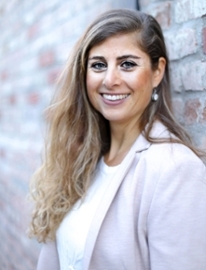 Los Angeles, CA -- Dr. Sophie Janicke-Bowles is an assistant professor of communication at Chapman University. As a positive media psychologist, she investigates the role that new and traditional media play in promoting and affecting character development, self-transcendent emotions, prosocial behavior, and well-being (aka happiness). Her research and teaching focus is on positive psychology, media and new communication technologies, and media and spirituality. As a member of a research team from Florida State and Penn State Universities, she was awarded a 3-year, $1.9M grant from the John Templeton Foundation (2015-2018) to explore how people use and are impacted by media content that elicits self-transcendent emotions such as awe, elevation, gratitude and compassion. Dr. Janicke-Bowles has published in a variety of high profile journals, such as the Journal of Communication, the Journal of Happiness Studies, and Mass Communication & Society. She has also twice earned a top-paper award for the Mass Communication Division at NCA, including this year, where she'll present with co-authors on "Exploring the Spirit in U.S. Audiences: The Role of the Virtue of Transcendence in Inspiring Media Consumption." Los Angeles, CA -- Dr. Sophie Janicke-Bowles is an assistant professor of communication at Chapman University. As a positive media psychologist, she investigates the role that new and traditional media play in promoting and affecting character development, self-transcendent emotions, prosocial behavior, and well-being (aka happiness). Her research and teaching focus is on positive psychology, media and new communication technologies, and media and spirituality. As a member of a research team from Florida State and Penn State Universities, she was awarded a 3-year, $1.9M grant from the John Templeton Foundation (2015-2018) to explore how people use and are impacted by media content that elicits self-transcendent emotions such as awe, elevation, gratitude and compassion. Dr. Janicke-Bowles has published in a variety of high profile journals, such as the Journal of Communication, the Journal of Happiness Studies, and Mass Communication & Society. She has also twice earned a top-paper award for the Mass Communication Division at NCA, including this year, where she'll present with co-authors on "Exploring the Spirit in U.S. Audiences: The Role of the Virtue of Transcendence in Inspiring Media Consumption."
In addition to her academic work, Dr. Janicke-Bowles runs Rewire Happiness, a website devoted to finding meaning in the digital age, and teaches yoga aboard the Queen Mary ship, which is docked in Long Beach, California. She has led yoga sessions at ICA, and expressed an interest in carving out a similar space at NCA!
Education-wise, she received her Diploma (the German equivalent to a Masters Degree) in clinical and media psychology from Eberhard-Karls University in Tuebingen, Germany in 2009 and a Ph.D. in mass communication from Florida State University in 2013. We spoke in October, 2018 via FaceTime for the interview:
GK: We hear so much about living in contentious times with a distracted and polarized culture. Does your research push back against that narrative, or accept it and find ways to negotiate it more productively?
SJB: It accepts the narrative, unfortunately, but finds ways to turn it around. The effects from these connections and emotions go against the reality we do see, and it's why I'm so passionate. When it comes to mindfulness, the research suggests meaningfulness as a state of becoming more aware helps us understand why this is all happening. These are concepts that media can elicit and help us if we think them through and, hopefully, make better choices in terms of divisiveness.
GK: You identify as a positive media psychologist. Can you describe what that means, and how you see yourself as a mass comm researcher?
SJB: My studies have been mainly in psychology, and I've looked at the role of how media effect our psychology. The positive psychology field is new, and it's asking how media can make us better rather than just how it can reduce negative media effects. [The latter] is still super important, but we ask a different question with different perspectives and outcomes in mind. It's looking at people as being better than themselves. How can we foster how people can be well? How can we lead a flourishing life and increase objective well-being? What content increases that and how can we use media to promote well-being?
GK: Fascinating. Your work seems to offer a challenge or pushback against our field a little bit, which has focused on harmful effects. So to what extent can we, as consumers of media, make better choices? But then also, where is the responsibility of media corporations and tech companies to offer design elements that help?
SJB: Those are important categories to consider. It's important to understand we have limits, and we're not always in control the way we think we are. As for the tech companies, they tap into our innate psychology: our need to belong, our need for self-approval. But these are slot-machine technologies to get us hooked. We can think ourselves as so strong, and in control, but we are not; and not acknowledging that is a disservice. Once we have acknowledged that, what can we do to derive the positive? That goes to not just being addicted, but to reducing screen time. We could use other apps, but the social and mass media environment has such an effect on what we think of reality and what we value in society. We can look at different cultures and see how they're affected by media. This can empower our values to start thinking independently of others and media. How can I choose a medium that provides a story on Netflix that fosters connectedness, if you're feeling distracted? You still want to feel entertained; you don't always have to have meaning and strong feelings all the time.
GK: There are different ways to consider media. As entertainment, as technology, as journalism. Or a combination of those things. I'm curious in thinking about your work how settings impact media consumption. You've published on watching videos at work, for instance. Television used to be consumed in the domestic living room. But now screens are everywhere, with us on our smartphones and tablets. So from movies to social networking to traditional journalism, how does the ecology of media change experiences?
SJB: I've been thinking about that a lot lately, especially with shifts in how teens use media. We shouldn't just look at one individual, but the shifts in whole environments. We saw numbers from movie theatres declining as entertainment is more at home, but in the home space, with the phone as extensions of our selves, is it a rich experience? If parents are watching on their own tablets, how does that change the experience from when television was introduced and the whole family gathered? Connectedness is a value that seems to be on the decline, as loneliness increases. So we should look at addressing those environments and not disregard them.
GK: How about academics themselves (ourselves)? Here in the Mass Comm Division of NCA, we should be more aware and sensitive to these issues, but I find myself always glued to screens and tuned in. How can academics improve their relationship to media technology and content, given our lifestyles? What should we think about, or consider in terms of behavior?
SJB: Our own lives and what we study have a tremendous effect on our lives. I chose to study what I do because I wanted to affect my life in a positive way. So I choose consciously. For my dissertation, I studied anti-heroes on television. A lot of aggressive, bloody content, which isn't even in my nature. I was definitely curious about the morality of it, but it affected my sleep and had all these other effects because I watched for stimulus. Now, as a profession, I know I want to do work that has a net positive effect on me. I am personally very conscious of my media use: we don't have live television at home; we watch one movie a week on Sunday nights. I'll watch documentaries and that which helps with my research. Mary Beth Oliver does amazing work, and she does engage the media she talks about and engages content. I should do that more, but I know it has an effect on me. So I focus more on unplugging. I'm not saying all or nothing is a good approach, but we should be aware of it.
GK: Your work on anti-heroes reflect the age of "prestige television" over the last two decades, which includes The Sopranos and Breaking Bad. There's been some incredibly satisfying storytelling. However, I'm wondering to what extent the enjoyment of these characters has tracked, politically, with the rise of populists around the globe advancing a strongman agenda? Is it totally coincidental, or is there a connection between entertainment, politics, and media with these characters?
SJB: There is a relationship between what goes on politically with what goes on culturally. This involves humanity as a whole, not just one country. It's not a mirror, and I don't know what comes first, but anti-heroes aren't very constructive: through them we exercise moral disengagement and moral justification. And the real world justifications are there, as with racism.
GK: In terms of managing news flows, there seems to be an over-abundance of information. Is there any specific advice you'd give to someone for negotiating all the different sources of news? We used to have a 24-hour news cycle, and now it seems to have sped up considerably.
SJB: We know the concept of bottomless bowls, which is very much applied to news. It's never ending, and that works with the slot-machine metaphor. I think it's important to know what your values are, and critically engage the news. You shouldn't just know the headlines, but look at that which gives you an informed opinion. We have so many emotional opinions now but don't have those that are critically-based. It doesn't make sense to be so up-to-date, if we're not doing anything with it. If we want to be informed for voting or joining a Facebook group about, say, reducing meat consumption for the health of the planet, that allows us to be active. But without an agenda behind it, I think information has negative effects. We asked a national representative sample of Americans about how the news affects their moods, and we're finding it does so considerably. That's not a new finding, but it's something to consider. Why should we devote ourselves to something if we're not going to do something with it? Know what your values are, look at news that helps you feel engaged, but don't just look at headlines.
GK: Are there particular sources of information you'd recommend to calm our news consumption?
SJB: It'd be great to balance that. If we have the New York Times and the Economist, that'd be good. I think they're neutral, but now we cannot even agree on that. Also, though, read the articles when you do read. And then following something like the Good News App or the Greater Good Science Center, which has great comments on well-being. The Huffington Post now has a category now for good news. Constructive journalism, the idea to write about something that is not just bleak but solution-oriented, has a big future. Research has shown that solution-focused articles motivate people and they'll read them longer. Apps that facilitate constructive journalism would be great.
GK: I tend to be a big fan of magazines, and find they provide some calm from the tech environment of email and digital news. It's also old-fashioned as print. We're seeing e-book sales plateau a bit. Do you think older media may be recycled as help for too much new technology?
SJB: The medium, in that sense, matters. It's one of the reasons why with social media, people don't read and pay attention. It becomes a superficial browsing experience, which research shows is not good for well-being. It's the engagement and active part that's important, and that applies to anything in life. Passivity is bad, and leads to depression. Activity is good, whether that's going to the gym or engagement associated with well-being and mental and physical health.
GK: You're from Germany, originally, and have taught in Europe. Do you think some of these issues affecting us with media technology are an American problem or a global phenomenon?
SJB: It is a global issue, but I would argue America is particularly affected by media because America is such an individualistic culture. Being an individual by ourselves does not make us happy. We still need to be connected. But what do we value? Materialism and success achieved by yourself? Asian cultures, which are collectivist, are different. But they have different underlying values substantiated underneath their media usage. Being from Germany, European cultures have more familiarity or connectedness values engrained. If you sit in a restaurant, no one will give you a check in five minutes because it encourages an environment to connect. These are buffers for some of these loneliness effects, which America is more sensitive to.
GK: A lot of media reports are referencing this concept of tribalism, as a function of political bias and echo chambers. McLuhan spoke about the concept a little differently. Is it surprising to you, though, that in such an individualist culture we have continual suggestions of tribalism?
SJB: I'm involved with coalitions trying to change media landscape from the inside, trying to make a contribution to foster connectedness and empathy going beyond individualism. We are much more similar than we are different, and that is a value. But it's a trend that may take a little more time to manifest on a mass-scale. I live in Los Angeles, which is different than Arkansas, where I also lived.
GK: Or Idaho.
SJB: Right. But even in smaller states, those things matter as well. The smaller the town, the more you have the understanding that there is some form of connectedness because community can form. There's a space for it. But here, from a social-psychological and evolutionary standpoint, there's too many people in too small a place. So you shut yourself off.
GK: Is there anything within our field that you'd like to see scholars pursue more?
SJB: It's hard to answer that in an unbiased way.
GK: Right. Let me reframe it, then. How can people who come from different traditions of mass communication look at, approach, or incorporate elements of positive media psychology in their own work?
SJB: It would be helpful if people with different backgrounds were able to sit down and discuss how we can foster well-being. Not just identifying negative stuff and avoiding violence, but how can we reconnect to values as wonderful beings? That we can be passionate and have rational dialogue without feeling personally attacked? Having perspectives from different scholars from different field with respect to that would be very beneficial, and that'd be good for me because I am biased, from my psychological training. I know a little of the other traditions, but I also want to stretch my brain and practice empathy within the discipline to see where other scholars are coming from. This would allow me to see how to construct other ideas to solve main problems, but also, as a discipline, considering what problems we do want to solve. A bigger understanding that asks for the big three or five questions we can answer or solve would help. I like to think in solution-oriented ways. I know theories are important, but there's so much we can do to provide solutions, coming, as we do, from different backgrounds as scholars.
GK: Thank you so much for chatting with us today. We look forward to seeing you in Salt Lake City!
SJB: Thank you!
<<back to top>>
NCA MCD OFFICERS
| 2017-2018 MCD Officers |
 Chair Chair
Meghan Sanders
Louisiana State University
Manship School of Mass Communication
217A Journalism Building
Baton Rouge, LA 70803
msand@lsu.edu |
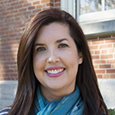 Vice-Chair Vice-Chair
Lissa Behm-Morawitz
Department of Communication
University of Missouri
215 Switzler Hall
Columbia, MO 65211
behmmorawitze@missouri.edu |
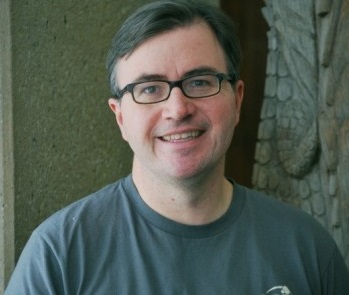 Vice Chair-Elect / Ad-Hoc Awards Vice Chair-Elect / Ad-Hoc Awards
David Rhea
Governors State University
Communication Program
One University Pkwy
University Park, IL 60484
drhea@govst.edu
|
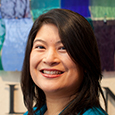 Past Chair Past Chair
Narissra Punyanunt-Carter
Texas Tech University
Department of Communication Studies
1015 Media & Communication
Lubbock, TX 79409
n.punyanunt@ttu.edu |
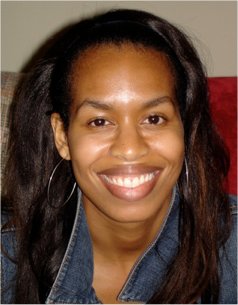 Secretary Secretary
Siobhan Smith
University of Louisville
Department of Communication
310 Strickler Hall
Louisville, KY 40292
siobhan.smith@louisville.edu
|
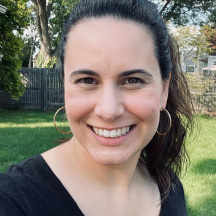 Secretary-Elect Secretary-Elect
Valerie Kretz
St. Norbert College
Department of Communication
100 Grant Street, Boyle Hall, 332
De Pere, WI 54115-2099
valerie.kretz@snc.edu
|
 Publications & Web Editor Publications & Web Editor
Zac Gershberg
Idaho State University
Department of Communication
921 S. 8th Ave., Stop 8242
Pocatello, ID 83209
gerszach@isu.edu
|
 Graduate Student Rep. Graduate Student Rep.
Colin Kearney
College of Journalism and Communications
University of Flordia
1885 Stadium Rd
Gainesville, FL 32611
ckearney1@ufl.edu
|
 Ad-Hoc Appointment - Group Parliamentarian Ad-Hoc Appointment - Group Parliamentarian
Shane Tilton
Ohio Northern University
Department of Communication
Freed PAC 137
Ada, OH 45810
s-tilton@onu.edu |
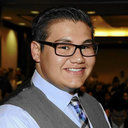 Graduate Student Rep. - Elect Graduate Student Rep. - Elect
JJ DeLaCruz
Texas Tech University
Department of Communication Studies
1015 Media & Communications
Lubbock, TX 79409
jorge.delacruz@ttu.edu |
| Research Committee |
 Committee Chair Committee Chair
Tracy Worrell
Rochester Institute of Technology
3041 Eastman Hall
Rochester, NY 14623
Tracy.Worrell@rit.edu |
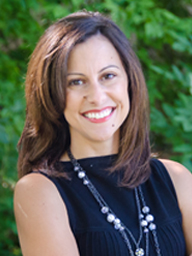 First Vice-Chair First Vice-Chair
Nicole Martins
Indiana University
940 E. Seventh St.
Bloomington, IN 47405
nicomart@indiana.edu |
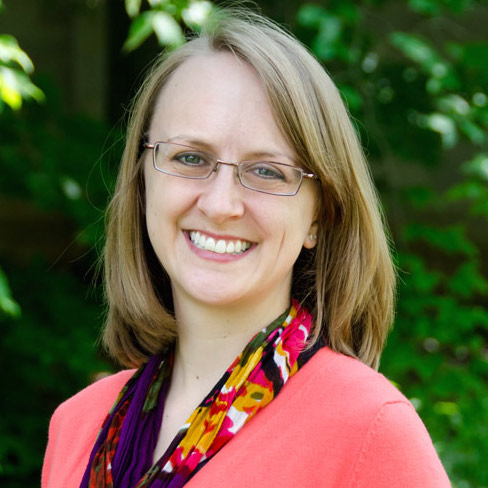 Second Vice-Chair Second Vice-Chair
Jessica Gall-Myrick
Pennsylvania State University
Dept of Film/Video & Media Studies
104 Carnegie Building
University Park, PA 16801
jgm43@psu.edu
|
 Second Vice-Chair - Elect Second Vice-Chair - Elect
Lisa Glebatis Perks
Merrimack College
315 Turnpike St
Cushing Building
North Andover, MA 01845
perksl@merrimack.edu
|
| Nominations Committee |
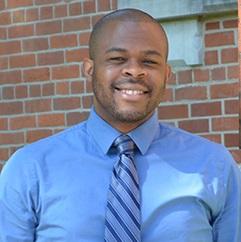 Committee Chair Committee Chair
Julius Riles
University fo Missouri
Department of Communication
311 Switzler Hall
Columbia, MO 65211
rilesj@missouri.edu |
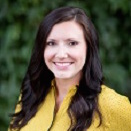 Chair-Elect Chair-Elect
Ashton Speno
Dept of Mass Communications
Southern Illinois University Edwardsville
1017 Dunham Hall
Edwardsville, IL 62025
aspeno@siue.edu |
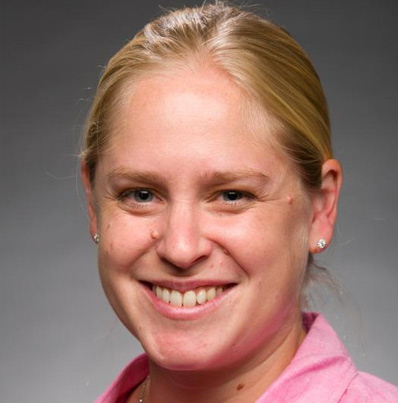 Nominations Committee Nominations Committee
Veronica Hefner
Department of Mass Communication
Georgia College
231 W. Hancock St.
Midgeville, GA 31061
vhefner@gmail.com |
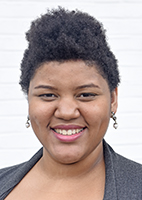 Nominations Committee - Elect Nominations Committee - Elect
Arienne Ferchaud
Department of Mass Communication
Georgia College
Midgeville, GA 31061
amf345@psu.edu
|
 Representative to NCA Nominations Committee Representative to NCA Nominations Committee
Srivi Ramasubramanian
Texas A & M University
Department of Communication
202D Bolton Hall, MS 4234
College Station, TX 77843
srivi@tamu.edu
|
|
| Representatives to NCA General Assembly |
 Legislative Assembly Legislative Assembly
Stan
Tickton
Norfolk State University
Mass Communication/Journalism
700 Park Ave., Unit 3249
Norfolk, Virginia 23504
sdtickton@hotmail.com |
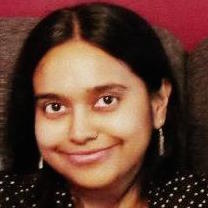 Legislative Assembly Legislative Assembly
Sumana Chattopadhyay
Marquette University
Diederich College of Communication
403 Johnston Hall
Milwaukee, WI 53233
sumana.chattopadhyay@marquette.edu |
|
|
<<back to top>>
This site best viewed and navigated with
Internet Explorer 7x or greater, and seems to work fine with Google Chrome and Mozilla Firefox.
(c) 2018 NCA Mass Communication Division
Questions? Comments? Send them to:
Zac Gershberg, Publications and Web Editor
Last Update: 03/23/2018 |
/20th_2.jpg)
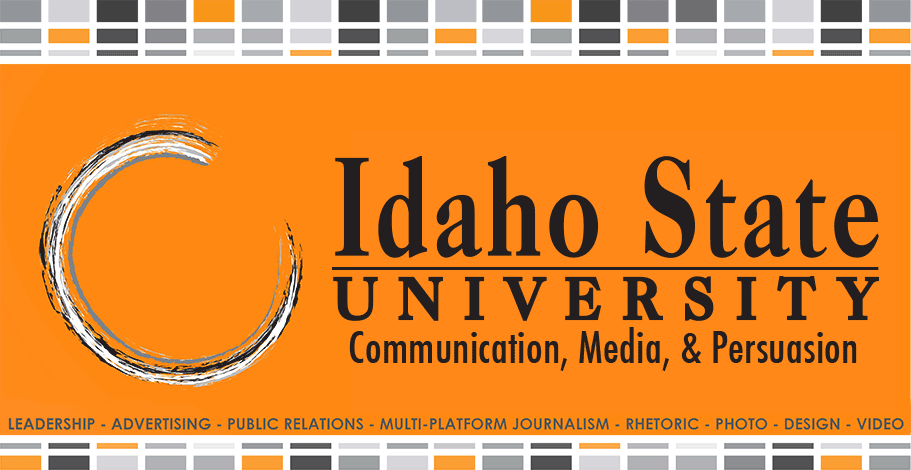


 Dr. Zac Gershberg
Dr. Zac Gershberg

 Vice Chair-Elect / Ad-Hoc Awards
Vice Chair-Elect / Ad-Hoc Awards
 Secretary
Secretary Graduate Student Rep.
Graduate Student Rep.
 Graduate Student Rep. - Elect
Graduate Student Rep. - Elect
 First Vice-Chair
First Vice-Chair Second Vice-Chair
Second Vice-Chair Second Vice-Chair - Elect
Second Vice-Chair - Elect Committee Chair
Committee Chair  Chair-Elect
Chair-Elect Nominations Committee
Nominations Committee Nominations Committee - Elect
Nominations Committee - Elect Representative to NCA Nominations Committee
Representative to NCA Nominations Committee
 Legislative Assembly
Legislative Assembly